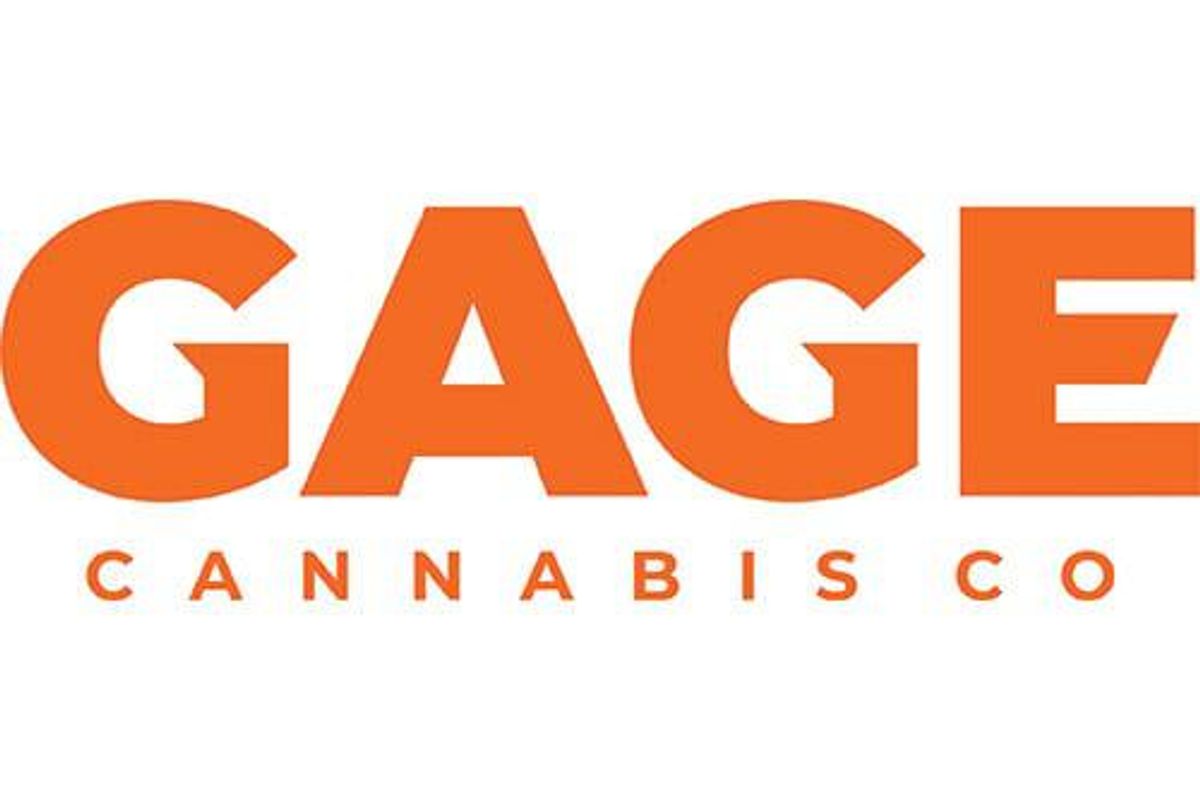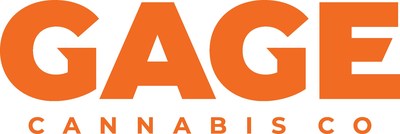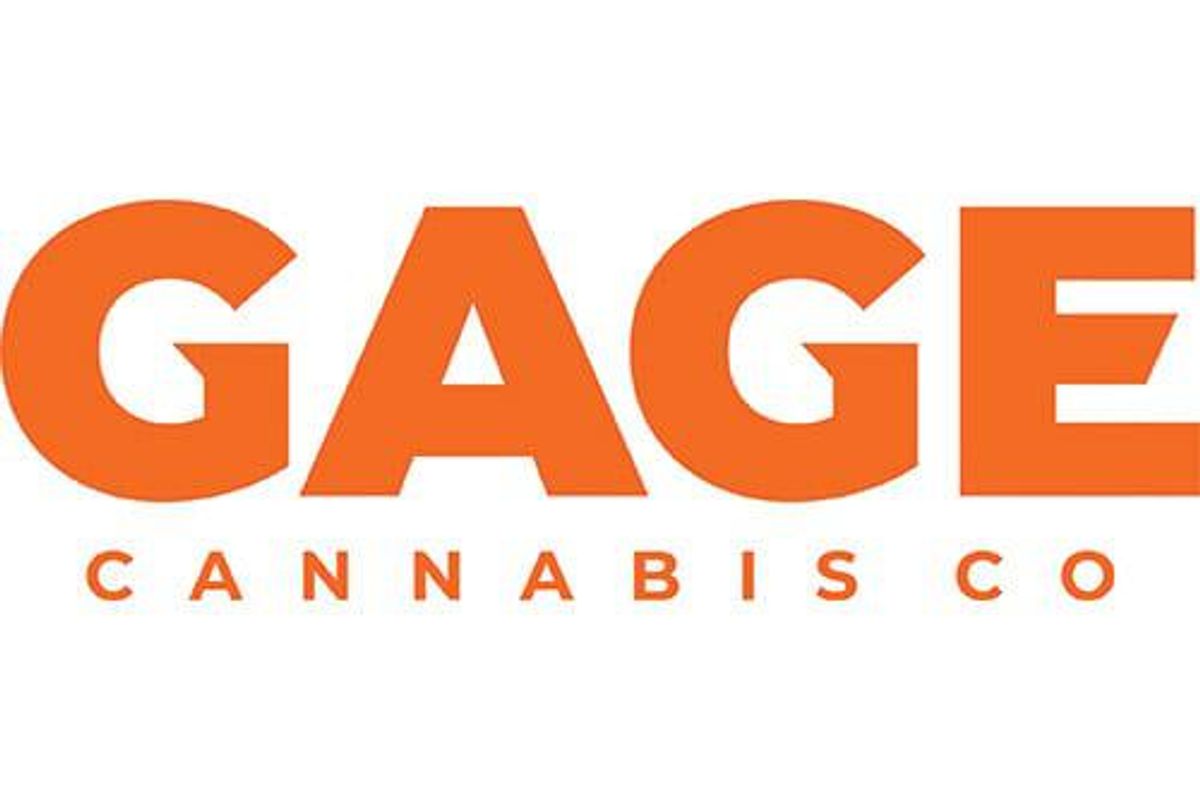
Gage's eighth retail location is currently welcoming medical patients and will serve adult-use customers in the coming weeks
Gage Growth Corp. ("Gage" or the "Company") (CSE: GAGE), a leading high-quality craft cannabis brand and operator in Michigan today announced the grand opening of its eighth provisioning center located in Battle Creek . This announcement comes on the heels of Gage's recent retail expansion in February when the Company opened Cookies Kalamazoo. Patients and customers in Western Michigan will now have access to two Gage provisioning centers. Furthermore, the Company also announced the addition of a provisioning center (dispensary) to its retail portfolio.
Battle Creek Opening
Located at 48 Main Street, Battle Creek, MI , 49014, Gage Battle Creek is currently serving patients with a valid Michigan Medical Marijuana ID and expects to begin welcoming adult-use customers in the coming weeks. The newest location will carry Gage's entire selection of products, as well as award-winning Cookies branded offerings that are exclusively available at Gage locations.
The 4,600+ square-foot location is expected to create 20+ new jobs in Battle Creek . The Company aims to build a robust cannabis business community in Michigan through its social equity program that awards $50,000 to cannabis entrepreneurs in 20 social equity cities designated by the Michigan Marijuana Regulatory Agency. The application process is open to Michigan residents year-round.
" Michigan's cannabis market continues to experience unprecedented growth, especially after sales topped $146 million in March alone, and Gage is determined to continue expanding our retail presence in order to meet this growing demand," said Fabian Monaco , CEO of Gage. "Our Battle Creek team is eager to work with new patients and consumers, as well as community stakeholders, to showcase the mental, physical and social benefits of cannabis."
Additional Retail Location
Gage is also pleased to announce that the Company has added another provisioning center (the "Dispensary") to its portfolio. The addition of the Dispensary to the Company's portfolio is aligned with the Company's growth strategy to identify, acquire, and operate licensed cannabis provisioning centers, positioning Gage as the leading cannabis brand in the state of Michigan .
The Dispensary is expected to open within 30 calendar days with projected revenue of US$10 -12 million in the next twelve months. The transaction is expected to be accretive to Gage on a revenue and Adjusted EBITDA basis.
About Gage
Gage Growth Corp. is innovating and curating the highest quality cannabis experiences possible for cannabis consumers in the state of Michigan and bringing internationally renowned brands to market. Through years of progressive industry experience, the firm's founding partners have successfully built and grown operations with federal and state licenses, including cultivation, processing and retail locations. Gage's portfolio includes city and state approvals for 19 "Class C" cultivation licenses, three processing licenses and 13 provisioning centers (dispensaries).
For more information about Gage Growth Corp., visit www.gagecannabis.com .
Instagram: @gagecannabis
Facebook: @gageusa
Twitter: @gagecannabisco
Gage Contact:
1-(833)-455-GAGE (4243)
IR@gageusa.com
Sources: Gage Growth Corp., Marijuana Regulatory Agency.
Non-IFRS Financial Measures
This press release refers to "Adjusted EBITDA" which is a non-IFRS financial measure. This non-IFRS financial measure does not have a standardized definition under IFRS, nor is it calculated or presented in accordance with IFRS and may not be comparable to similar measures presented by other companies. The Company defines "Adjusted EBITDA" as net income (loss) from operations, as reported, before interest and tax, adjusted to exclude extraordinary items, non-recurring items, other non-cash items, including stock-based compensation expense, depreciation and amortization, foreign exchange and acquisition related costs, if applicable.
The Company has referenced this non-IFRS financial measure as supplemental information and believes it provides a valuable additional measure to use when analyzing the operating performance of the business. As other companies may calculate this non-IFRS measure differently than the Company, this metric may not be comparable to similarly titled measures reported by other companies. We caution readers that Adjusted EBITDA should not be substituted for determining net loss as an indicator of operating results, or as a substitute for cash flows from operating and investing activities.
Explanatory Note Regarding the Company's Operations
References in this news release to the Company and its operations and assets are inclusive of the operations and assets of certain licensed cannabis operators that operate under the Gage brand pursuant to contractual arrangements with the Company. For additional information, please refer to the Company's long form prospectus dated March 26, 2021 and other disclosure documents available on the Company's profile at www.sedar.com .
Caution Regarding Cannabis Operations in the United States
Investors should note that there are significant legal restrictions and regulations that govern the cannabis industry in the United States . While legal in certain states, cannabis remains a Schedule I drug under the U.S. Controlled Substances Act, making it illegal under federal law in the United States to, among other things, cultivate, distribute or possess cannabis. Financial transactions involving proceeds generated by, or intended to promote, cannabis-related business activities in the United States may form the basis for prosecution under applicable U.S. federal money laundering legislation. Investors should carefully read the risk factors and disclosures contained in the Company's long form prospectus dated March 26, 2021 and other disclosure documents available on the Company's profile at www.sedar.com .
Cautionary Note Regarding Forward-Looking Information and Statements
This press release contains certain "forward-looking information" within the meaning of applicable Canadian securities legislation and may also contain statements that may constitute "forward-looking statements" within the meaning of the safe harbor provisions of the United States Private Securities Litigation Reform Act of 1995. Such forward-looking information and forward-looking statements are not representative of historical facts or information or current condition, but instead represent only Gage's beliefs regarding future events, plans or objectives, many of which, by their nature, are inherently uncertain and outside of Gage's control. Generally, such forward-looking information or forward-looking statements can be identified by the use of forward-looking terminology such as "plans", "expects" or "does not expect", "is expected", "budget", "scheduled", "estimates", "forecasts", "intends", "anticipates" or "does not anticipate", or "believes", or variations of such words and phrases or may contain statements that certain actions, events or results "may", "could", "would", "might" or "will be taken", "will continue", "will occur" or "will be achieved". The forward-looking information and forward-looking statements contained herein may include, but are not limited to, statements about the opening and financial performance of the Dispensary.
By identifying such information and statements in this manner, Gage is alerting the reader that such information and statements are subject to known and unknown risks, uncertainties and other factors that may cause the actual results to be materially different from those expressed or implied by such information and statements. In addition, in connection with the forward-looking information and forward-looking statements contained in this press release, Gage has made certain assumptions. Although Gage believes that the assumptions and factors used in preparing, and the expectations contained in, the forward-looking information and statements are reasonable, undue reliance should not be placed on such information and statements, and no assurance or guarantee can be given that such forward-looking information and statements will prove to be accurate, as actual results and future events could differ materially from those anticipated in such information and statements. Among others, the key factors that could cause actual results to differ materially from those projected in the forward-looking information and statements are the following: unexpected costs or delays in the completion of the Company's proposed dispensaries and other operations; negative results experienced by the Company as a result of general economic conditions or the ongoing COVID-19 pandemic; delays in the ability of the Company to obtain certain regulatory approvals; unforeseen delays or costs in the completion of the Company's construction projects; adverse changes to demand for cannabis products; ongoing projects by competitors that may impact the relative size of the Company's operations; adverse changes in applicable laws; adverse changes in the application or enforcement of current laws, including those related to taxation; increasing costs of compliance with extensive government regulation; changes in general economic, business and political conditions, including changes in the financial markets; and the other risks disclosed in the Company's long form prospectus dated March 26, 2021 and other disclosure documents available on the Company's profile at www.sedar.com .
The forward-looking information and forward-looking statements contained in this press release are made as of the date of this press release, and Gage does not undertake to update any forward-looking information and/or forward-looking statements that are contained or referenced herein, except in accordance with applicable securities laws.
Third Party Information
This press release includes market and industry data that has been obtained from third party sources, including industry publications. The Company believes that the industry data is accurate and that its estimates and assumptions are reasonable, but there is no assurance as to the accuracy or completeness of this data. Third party sources generally state that the information contained therein has been obtained from sources believed to be reliable, but there is no assurance as to the accuracy or completeness of included information. Although the data is believed to be reliable, the Company has not independently verified any of the data from third party sources referred to in this press release or ascertained the underlying economic assumptions relied upon by such sources.
SOURCE: Gage Growth Corp.
Related Links
https://gagecannabis.com
![]() View original content to download multimedia: https://www.prnewswire.com/news-releases/gage-cannabis-announces-the-grand-opening-of-battle-creek-dispensary-and-adds-another-dispensary-to-retail-portfolio-301280908.html
View original content to download multimedia: https://www.prnewswire.com/news-releases/gage-cannabis-announces-the-grand-opening-of-battle-creek-dispensary-and-adds-another-dispensary-to-retail-portfolio-301280908.html
SOURCE Gage Cannabis Co.

![]() View original content to download multimedia: https://www.newswire.ca/en/releases/archive/April2021/30/c6353.html
View original content to download multimedia: https://www.newswire.ca/en/releases/archive/April2021/30/c6353.html

